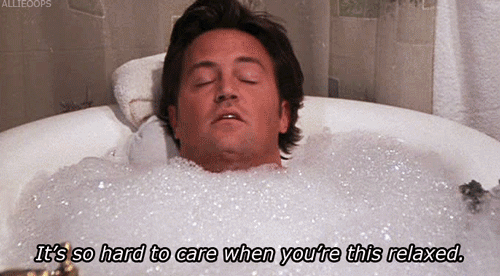1) Read a book.
This will always be my top answer
for escaping any situation. It doesn’t matter what type of book you read, it
will transport you to another world. A world where your problems suddenly
disappear as you immerse yourself into someone else’s story. You start to think
about someone else’s life as much as your own. You will laugh, cry and grow
along with each character you meet. As you venture further into their world,
your world slowly fails to exist and it’s wonderfully refreshing.
2) Walk whilst listening to music
If you can’t
afford a plane ticket, then an iPod and a pair of decent earphones are the next
best thing. It’s healthy to allow yourself some time alone to recuperate and if
your house is far too crowded, grab your iPod and walk. Don’t even think about
where you want to go – just walk. Let your feet wander and free your thoughts.
It’s more therapeutic than you may think.
3) Talk to a stranger
Or if that step seems a bit
too daunting, then smile at a stranger. A quick social interaction between
yourself and someone you have not established a connection with not only builds
confidence but it’s scientifically known to make you happy. Or if that seems
unnerving then chat to a stranger online. www.blahtherapy.com
is a website specifically aimed to connect strangers across the globe to rant
about their problems. Which brings me onto my next point…
4) Write
This is another personal favourite of
mine. There are so many different forms of writing that suits a lot of people.
Story writing, blogging, poetry, journals & diaries, lyrics, the list goes
on. A blank piece of paper and the marvels of your mind can take you to the
most wonderful places. You can create a whole world where you’re in control of
every little detail. You can make this world as perfect or as flawed as you
wish. Dare to escape into a world that is not your own.
5) Take photographs of strangers
This a more lifelike
way of indulging into someone else’s world. You will tend to get a feeling of sonder,
when you realise that each stranger has a life that is as complex as your own.
6) Watch inspirational, deep-meaningful films
Proponents of cinema therapy say that, in addition to getting
award nods, these and other movies can and will change the way we think, feel,
and ultimately deal with life's ups and downs. An increasing number of
therapists prescribe movies to help their patients explore their psyches. And
while few therapists have actually gone so far as to package their practices
around cinema therapy, movies -- like art, books, and music -- are becoming one
more tool to help those in therapy achieve their goals and overcome their
hurdles. Here’s a few movies that could help;
- Castaway
-Into The Wild
- Castaway
-Into The Wild
-Life of Pi
-127 Hours
-Eternal Sunshine of the Spotless Mind -Forrest Gump
-The Shawshank Redemption
-The Pursuit of Happiness
-The Blindside
-Slumdog Millionaire
-127 Hours
-Eternal Sunshine of the Spotless Mind -Forrest Gump
-The Shawshank Redemption
-The Pursuit of Happiness
-The Blindside
-Slumdog Millionaire
7) Cook
As soon as you get out the pots and pans
you’re instantly focused on creating something delicious. There is only a primary
focus on whether that spice will blend with your meat. If you’re not much of a
cook like myself, then there are a plethora of websites that are at your
disposal. BBC Good Foods is a
personal favourite.
8) Exercise
In the words of Elle Woods “Exercise gives you endorphins. Endorphins make you happy. Happy people just don't shoot their husbands, they just don't.” The hardest part is always starting, but just imagine that inevitable good feeling you’ll get after you’ve finished that workout.
9) Bath
Imagine being comforted by a liquid
blanket hugging your skin while you relax in a deep serenity surrounded by
exotic smells that will create an illusion that you’re at a spa in the Caribbean.
Now who wouldn’t want that?
1
10) Meditate
This is conventionally a fairly sceptical
practice. According to Lifehacker.com, “Using modern technology like fMRI
scans, scientists have developed a more thorough understanding of what’s taking
place in our brains when we meditate. The overall difference is that our brains
stop processing information as actively as they normally would. We start to
show a decrease in beta waves, which indicate that our brains are
processing information, even after a single 20-minute meditation session if
we’ve never tried it before.10) Meditate
In the image below you can see how the beta
waves (shown in bright colours on the left) are dramatically reduced during
meditation (on the right).” According to experts a better focus, less anxiety,
more creativity, more compassion, a better memory and less stress is just some
of the benefits that are gained from meditation. (For more information, check
out http://lifehacker.com/what-happens-to-the-brain-when-you-meditate-and-how-it-1202533314)

No comments:
Post a Comment